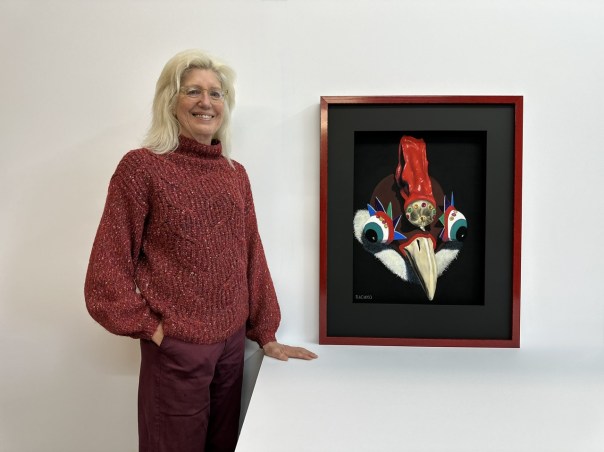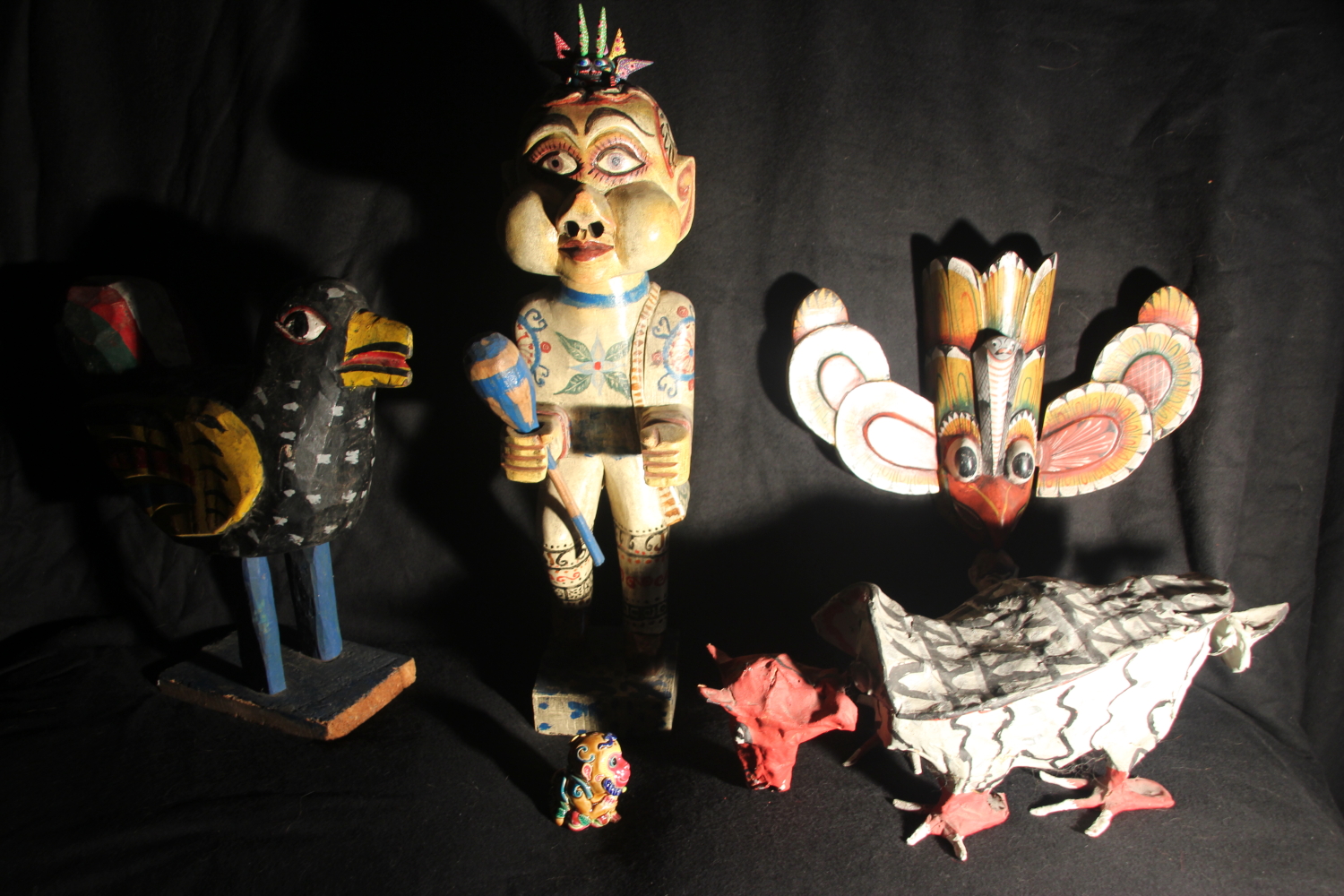Blog Archives
Pearls from artists* # 666
Posted by barbararachkoscoloreddust

*an ongoing series of quotations – mostly from artists, to artists – that offers wisdom, inspiration, and advice for the sometimes lonely road we are on.
Most of my writing life consists of nothing more than unglamorous, disciplined labor. I sit at my desk and I work like a farmer, and that’s how it gets done. Most of it is not fairy dust in the least.
But sometimes it is fairy dust. Sometimes when I’m in the midst of writing, I feel like I am suddenly walking on one of those moving sidewalks that you find in a big airport terminal; I still have a long slog to my gate. And my luggage is still heavy, but I can feel myself being gently propelled by some exterior force. Something is carrying me along – something powerful and generous – and that something is decidedly not me.
You may know this feeling. It’s the feeling you get when you’ve made something wonderful, or done something wonderful, and when you look back at it later, all you can say is: “I don’t even know where that came from.”
Elizabeth Gilbert in Big Magic: Creative Living Beyond Fear
Comments are welcome!
Share this:
- Share on Facebook (Opens in new window) Facebook
- Share on X (Opens in new window) X
- Share on Tumblr (Opens in new window) Tumblr
- Share on Pinterest (Opens in new window) Pinterest
- Share on LinkedIn (Opens in new window) LinkedIn
- Share on Reddit (Opens in new window) Reddit
- Email a link to a friend (Opens in new window) Email
- Print (Opens in new window) Print
Posted in 2025, 2025, An Artist's Life, Inspiration, Pearls from Artists, Quotes
Comments Off on Pearls from artists* # 666
Tags: airport, ”Big Magic: Creative Living Beyond Fear”, ”Harbinger, carrying, consists, decidely, disciplined, Elizabeth Gilbert, exterior, fairy dust, farmer, framed, generous, gently, luggage, moving sidewalks, myself, nothing, powerful, propelled, soft pastel on sandpaper, something, sometimes, suddenly, terminal, unglamorous, walking, wonderful, Writing, writing life
Pearls from artists* # 439
Posted by barbararachkoscoloreddust
* an ongoing series of quotations – mostly from artists, to artists – that offers wisdom, inspiration, and advice for the sometimes lonely road we are on.
Art is a way of preserving experiences, of which there are many transient and beautiful examples, and that we need help containing. There is an analogy to be made with the task of carrying water and the tool that helps us do it. Imagine being out in a park on a blustery April day. We look up at the clouds and feel moved by their beauty and grace. They feel delightfully separate from the day-to-day bustle of our lives. We give our minds to the clouds, and for a time we are relieved of our preoccupations and placed in a wider context that stills the incessant complaints of our egos. John Constable’s cloud studies invite us to concentrate, much more than we would normally, on the distinctive textures and shapes of individual clouds, to look at their variations in colour and at the way they mass together. Art edits down complexity and helps us to focus, albeit briefly, on the most meaningful aspects. In making his cloud studies, Constable didn’t expect us to become deeply concerned with meteorology. The precise nature of a cumulonimbus is not the issue. Rather, he wished to intensify the emotional meaning of the soundless drama that unfolds daily above our heads, making it more readily available to us and encouraging us to afford it the central position it deserves.
Alain de Botton and John Armstrong in Art as Therapy
Comments are welcome!
Share this:
- Share on Facebook (Opens in new window) Facebook
- Share on X (Opens in new window) X
- Share on Tumblr (Opens in new window) Tumblr
- Share on Pinterest (Opens in new window) Pinterest
- Share on LinkedIn (Opens in new window) LinkedIn
- Share on Reddit (Opens in new window) Reddit
- Email a link to a friend (Opens in new window) Email
- Print (Opens in new window) Print
Posted in 2021, Art in general, Inspiration, New York, NY, Pearls from Artists, Quotes
Comments Off on Pearls from artists* # 439
Tags: afford, Alain de Botton, analogy, Art as Therapy, aspects, available, beautiful, beauty, become, blustery, briefly, bustle, carrying, central, clouds, colour, complaints, complexity, concentrate, concerned, containing, context, cumulonimbus, day to day, deeply, delightfully, deserves, emotional, encouraging, examples, expect, experiences, imagine, incessant, individual, instinctive, intensify, John Armstrong, John Constable, making, meaning, meteorology, nature, New York Harbor, normally, placed, position, precise, preoccupations, preserving, readily, relieved, separate, shapes, soundless, stills, studies, textures, together, transient, unfolds, variations, wished
Pearls from artists* # 154
Posted by barbararachkoscoloreddust
* an ongoing series of quotations – mostly from artists, to artists – that offers wisdom, inspiration, and advice for the sometimes lonely road we are on.
Often the public forms an idea of inspiration that is quite false, almost a religious notion. Alas! I do not believe that inspiration falls from heaven. I think it rather the result of a profound indolence and of our incapacity to put to work certain forces in ourselves. These unknown forces work deep within us, with the aid of the elements of daily life, its scenes and passions, and, they burden us and oblige us to conquer the kind of somnolence in which we indulge ourselves like invalids who try to prolong dream and dread resuming contact with reality, in short when the work that makes itself in us and in spite of us demands to be born, we can believe that this work comes to us from beyond and is offered by the gods. The artist is more slumberous in order that he shall not work. By a thousand ruses, he prevents his nocturnal work from seeing the light of day.
For it is at the moment that consciousness must take a precedence and that it becomes necessary to find the means which permit the unformed work to take form, to render it visible to all. To write, to conquer ink and paper, accumulate letters and paragraphs, divide them with periods and commas, is a different matter than carrying the dream of a play or of a book.
Jean Cocteau: The Process of Inspiration in The Creative Process, edited by Brewster Ghiselin
Comments are welcome!
Share this:
- Share on Facebook (Opens in new window) Facebook
- Share on X (Opens in new window) X
- Share on Tumblr (Opens in new window) Tumblr
- Share on Pinterest (Opens in new window) Pinterest
- Share on LinkedIn (Opens in new window) LinkedIn
- Share on Reddit (Opens in new window) Reddit
- Email a link to a friend (Opens in new window) Email
- Print (Opens in new window) Print
Posted in 2015, An Artist's Life, Creative Process, Pearls from Artists, Photography, Quotes, Working methods
Comments Off on Pearls from artists* # 154
Tags: "The Creative Process", "The Process of Inspration", accumulate, artist, becomes, believe, beyond, book, born, Brewster Ghiselin, burden, carrying, certain, commas, conquer, consciousness, contact, daily, day, demands, different, divide, dread, dream, elements, falls, false, forces, form, forms, gods, heaven, idea, incapacity, indolence, indulge, ink, inspiration, invalids, itself, Jean Cocteau, letters, life, light, makes, matter, means, moment, necessary, nocturnal, notion, oblige, offered, ourselves, painting, paper, passions, periods, permit, play, precedence, prevents, profound, prolong, public, rather, reality, religious, render, result, resuming, ruses, scenes, seeing, slumberous, somnolence, spite, thousand, unformed, unknown, visible, within, work, write


